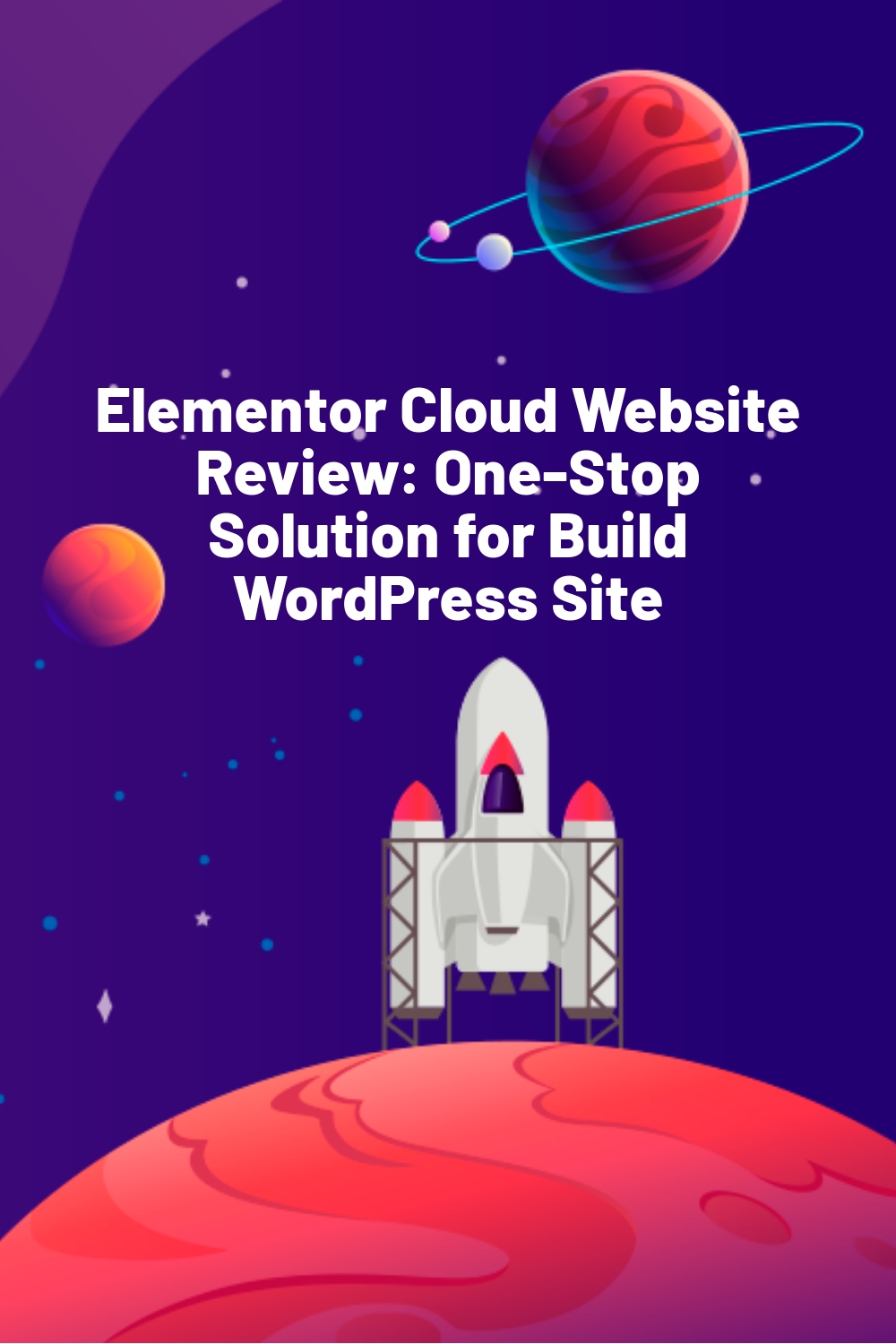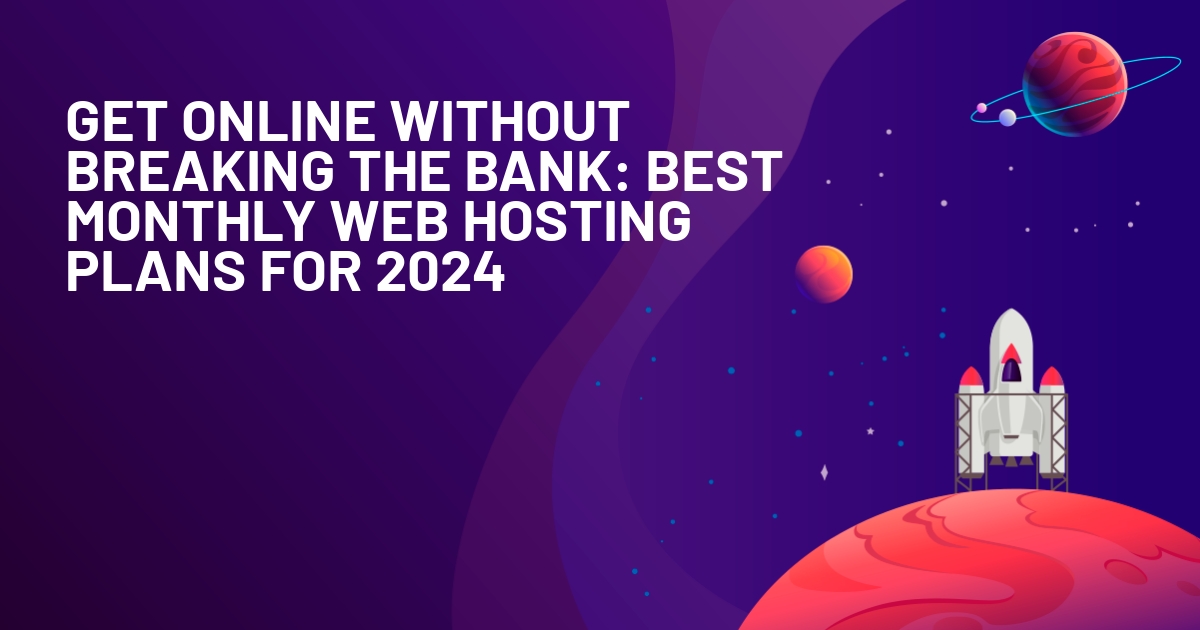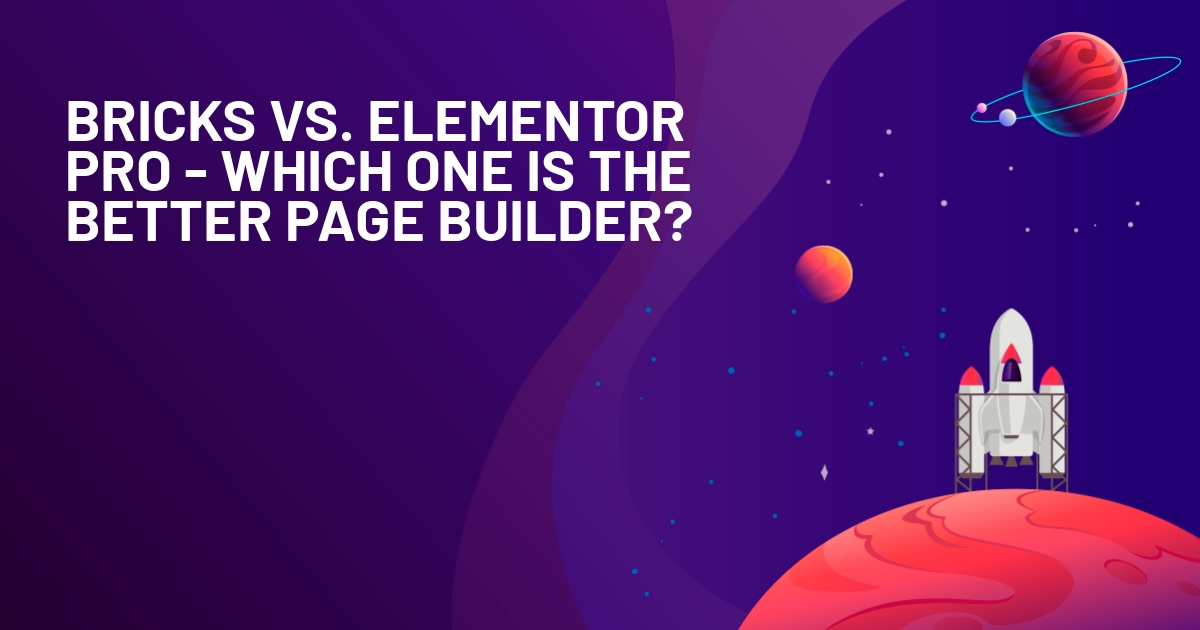WPLift is supported by its audience. When you purchase through links on our site, we may earn an affiliate commission.
Elementor Cloud Website Review: One-Stop Solution for Build WordPress Site
Elementor has officially launched its hosting service, Elementor Cloud Website or Elementor Hosting. Now you can get everything you need all in one place.
Elementor has already expanded with features like full theme building, dynamic content, a popup builder, and more. These features let you control pretty much every part of your site’s front-end display from one tool – Elementor Pro. That’s a big part of why we like Elementor Pro so much, and also why we use it to control the design on WPLift.
However, before now, Elementor still couldn’t help you with the other part of running a website – the backend infrastructure and maintenance. It’s not as flashy as glamorous, but it’s even more important than how your site looks on the front-end because a slow or unreliable website is going nowhere fast.
Elementor Cloud Website changes that. Now, from one service, you’ll be able to have Elementor help you with both the backend infrastructure and the frontend display. That means you can focus 100% on designing awesome websites for you and/or your clients.
The service has been on beta and invite-only use for a while now. As of this writing, Elementor’s hosting service is now available for anyone interested.
In this post, we’re going to take a look into what Elementor Cloud Website offers, what you should expect, and how it can help you out.
What Is Elementor Cloud Website?

Elementor Cloud Website lets you create, manage and host your website – all with Elementor. It’s an end-to-end solution for web creators who want to focus on building and designing their websites. The service takes care of hosting and other technical aspects of creating a website so you don’t have to.
It’s similar to managed WordPress hosting specifically for Elementor websites built on the full WordPress software that we all know and love. The only difference between it and self-hosted WordPress is that Elementor handles all of the setup and maintenance for you so you can focus on creating.
Obviously, it also comes with pre-installed Elementor and Elementor Pro so that you can start designing your site right away.
What’s Included With Elementor Cloud Website?
When you sign up for Elementor Cloud Website, you get access to the backend infrastructure and front-end design tools.

Article Continues Below
The backend infrastructure follows the same basic resource approach as most managed WordPress hosts, with limits based on storage, bandwidth, and visitors.

Elementor offers several hosting plans, so the storage space, bandwidth and monthly visits you’ll get depend on the plan you choose.
While it does not work for major websites that attract higher traffic, these plans are more than enough for the intended audience of Elementor Cloud Website. That includes small businesses, smaller ecommerce shops, creatives, personal blogs, and more.
Elementor Cloud Website’s features are broken into three categories: Hosting, CMS, and Design Tools.
Google Cloud & CloudFlare CDN
Elementor is based on Google Cloud platform and uses Content Delivery Network by Cloudflare. Google Cloud is fast, incredibly secure, and highly scalable which makes it the top choice for some of the world’s leading companies and millions of customers. With Google Cloud, your site is protected from fraudulent activity, spam, and abuse through the same advanced security tools that Google use. Your site also gets an extra layer of protection from DDoS attacks and brute force hacks with Cloudflare’s built-in unmetered DDoS protection.
You can bring your own custom domain name and you’ll get access to built-in free SSL certificates. Elementor will backup your site every 24 hours and you’ll get access to premium support.
WAF (Web Application Firewall) is another notable feature that stops all malicious traffic before reaching your site.
Users receive a free Elementor domain they can connect to their emails so that they can send automatic messages to their site’s visitors.
There’s also a nice feature for people who build client sites (which is a lot of Elementor users) – while you’re working on a site, you can make it private and lock it behind an access code. This is neat if you’re working on a client site and want to give your client access while still keeping the site private from anonymous visitors.
CMS Tools
Elementor Cloud Website comes with WordPress pre-installed and built-in Elementor Pro editing features. You also get access to the fast, free and flexible Hello Elementor theme.
Some Elementor hosting plans come with staging environments where admins can test new features before including them on the website’s live version.
Design Tools

When you sign up for Elementor Cloud Website, you’re getting access to all the features of Elementor Pro. This includes over a hundred widgets, over three hundred templates, website kits and more.
Most importantly, you’ll gain access to Elementor’s theme builder which allows you to design a unique theme for your site.
The WooCommerce builder is also included with all hosting plans so you can easily build your eStore.
Moreover, you won’t have to look for form builder, popup builder, or loop builder plugins, because the Elementor hosting plan you choose will have these builders.
Consequently, you’ll have all the tools you’ll need to capture leads or loops for your WooCommerce store’s product archives.
Beyond that, you’ll still be able to install your own WordPress plugins with a few restrictions.
Can You Use Other Plugins With Elementor Cloud Website?
Yes! Unlike some other cloud solutions, Elementor Cloud Website is still pretty much fully-functioning WordPress. That means you’ll be able to install your own WordPress plugins to go along with Elementor/Elementor Pro. For example, you can install Yoast SEO, Toolset, LearnDash, and more.
There are some restrictions, though like other managed WordPress hosting services.
First off, you can’t use a competing page builder plugin like Beaver Builder, Oxygen Builder, or Divi. If you’re using Elementor Cloud Website, you’re probably set on Elementor.
There are some performance plugins you can’t install which we assume is because Elementor Cloud Website is already implementing these popular performance techniques for you.
You will also notice that some migration plugins are also not supported. However, Elementor has import and export tools that allow you to easily migrate your website in a few simple steps.
All in all, though, you should be able to use pretty much any plugin that you need.
Here’s a full list of the plugins you can’t install while using Elementor Cloud Website:
- WP Clone
- WP Total Cache
- Site Origin Panels
- Site Origin Widgets Bundle
- Brizy
- Beaver Builder
- Beaver Builder Lite
- Visual Composer
- Really Simple SSL
- Shortcodes Ultimate
- QTranslate X
- Limit Login Attempts Reloaded
- BWP Minify
- Heartbeat Control
- SiteGround CachePress
- Divi Builder
- Oxygen Builder
- Image Map Pro
- WD Facebook Feed
- WP File Manager
- Peepso
- Duplicator
- Updraft Plus
- JetPack
- Migrate Guru
- BlueHost Site Migrator
- Customizer Export/Import
- WP Site Migrate
- WP Migrate
- WPVivid Backup and Restore
- VaultPress
- Backup Guard
- WP Reset
- WP All In One Import
- SiteGround Migrator
Elementor Cloud Website Pricing

Elementor’s hosting service used to have straightforward pricing at a fixed $99 a year. However, the platform recently moved to the monthly subscription model and currently, you can choose from four plans.
Basic
This is the most affordable hosting plan Elementor offers. This monthly subscription costs just $9.99 which makes it perfect for users looking for a hosting solution for a single WordPress site.
The plan comes with WordPress and Elementor Pro installed and it includes managed hosting on the Google Cloud Platform. Your site will be backed up daily and each backup will be deleted after 14 days.
Other features included in Elementor’s Basic hosting plan are:
- Drag & Drop editor
- Over a hundred basic and pro widgets
- More than 150 templates
- 110 website kits
- The theme, WooCommerce, Loop, Form, and Popup builders
This hosting plan has certain server-side limitations, hence you’ll only get the:
- 10GB of SSD storage
- 30GB of monthly bandwidth
- 25,000 website visits per month
Also, you’ll have to consider other hosting plans if you want to have access to a staging environment, request an on-demand backup for more than one site, or connect a custom domain to two Elementor-hosted websites.
Business
Although it is slightly more expensive Elementor’s Business hosting plan is similar to the Basic plan. Both plans have the same features, with a few exceptions. Most importantly, you get more server storage space with the Business plans because it includes:
- 20GB of SSD storage
- 50,000 website visits per month
- 50GB of monthly bandwidth
In addition, the plan comes with a staging environment, two custom domain connects, and premium support for two team members. The Elementor Business plan costs $19.99 per month.
Grow
You should consider purchasing the Grow plan if you need a hosting solution for three WordPress websites. The plan offers:
- 25GB of SSD storage
- 75,000 website visits per month
- 75GB of bandwidth
The automatic daily updates are deleted after thirty days and on-demand backup is available for up to three websites. The plan’s price is $22.99 per month.
Scale
This plan is aimed at businesses that run up to ten websites. The monthly subscription to the Scale plan is $49.99. You’ll get:
- 40GB of SSD storage
- 100,000 website visits per month
- 100GB of bandwidth
In addition, the plan includes up to three on-demand backups per site and customer support for up to six members.
Other Elementor Cloud Website FAQs
Let’s quickly run over some other questions that you might have about Elementor Cloud Website…
Does Elementor Cloud Website include Elementor Pro?
Yes! You get Elementor Pro as part of your Elementor Cloud Website annual subscription.
Can I use my own domain name with Elementor Cloud Website?
Yes! While Elementor currently doesn’t offer registration services, you can easily connect your custom domain to your Elementor Cloud Website. This step by step guide walks you through the process of adding a custom domain to your site
Can you host multiple sites with Elementor Cloud Website?
You can build one website with each Elementor Cloud Website subscription. There are no limitations to the number of subscriptions you can add.
Does Elementor back up my site?
Yes! Elementor will automatically back up your site every day.
Can I migrate my site away from Elementor Cloud Website if I want to switch to a host?
Yes! You can transfer your website to any hosting provider if you decide that Elementor Cloud Website isn’t for you. Remember – it’s still WordPress, so you can move to your own self-hosted install if you want.
Can I migrate my existing site to Elementor Cloud Website?
No! Currently, you cannot migrate an existing site to Elementor Cloud Website. It only works for sites that you’ve created from scratch on the platform.
As we answered above, though, you can go in the other direction and migrate your site away from Elementor Cloud Website to another WordPress host.
Does Elementor Cloud Website offer support?
Yes. Elementor Cloud Website has a premium support team available to answer you within a day on the average. You also get access to 24/7 live chat.
What is Elementor Cloud?
Elementor Cloud is an all-in-one hosting solution for WordPress websites. Besides hosting plans, the service includes the Elementor Pro so you can build a website from scratch.
All Elementor Cloud plans include hosting on the Google Cloud Platform which is well-known for its security and speed features. Still, it’s important to note that the amount of storage space and monthly bandwidth depend on the plan.
Hence, the Basic monthly subscription is best suited for new and small WordPress sites, while the Scale plan is ideal for large websites with more than 75,000 monthly visits.
Is Elementor Cloud Based?
Like all WordPress plugins, Elementor page builder is a part of your site’s installation. Hence, its files will be stored on your server with the rest of your website’s core, theme, and plugin files. So, in that sense Elementor is a cloud-based tool.
However, you cannot use Elementor like other web-based applications because you must first install this page builder before you can access its tools. Elementor also offers hosting services on the Google Cloud Platform for WordPress websites.
Is Elementor Cloud Worth It?
If you’re looking for a cheap hosting solution for your first website, the Elementor Cloud could be a good choice for you.
The Basic hosting plan costs $9.99 and it includes 10GB of SSD storage and 30GB of monthly bandwidth which should be more than enough for most portfolio sites and blogs. The plan includes Elementor Pro page builder, so you won’t have to purchase the plugin. The Elementor Cloud isn’t the right solution for you, if you already have a developed website portfolio that attracts more than 100,000 visitors every month, because all Elementor hosting plans have monthly visitor limits.
How to Get Started With Elementor Cloud Website
If you want to try it out, click the button below to go to the Elementor Cloud Website.
And if you want to learn more about Elementor Pro in general and why we think it’s the best page/website builder for WordPress, check out our detailed Elementor review or click the button below to go to the Elementor Pro website:










